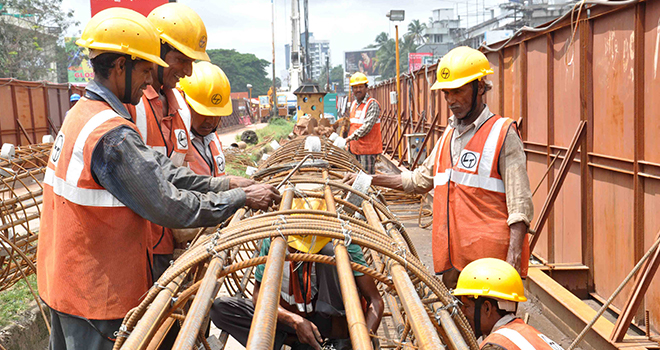Smaller cities edge out metros in employment opportunities

An article in Hindustan Times talks about how smaller cities edging out the metros in job creation and hiring, a trend attributed to companies looking for newer markets and dedicated workers with knowledge of local business; along with inputs from Rituparna Chakraborty.
If you are in a non-metro city, you have a better chance of landing a job with a private company.
Latest trends from top headhunting agencies show smaller cities edging out the metros in job creation and hiring, a trend attributed to companies looking for newer markets and dedicated workers with knowledge of local business.
This could be crucial for the Narendra Modi government’s push to revive industry and create jobs needed to absorb about 10 million people joining the workforce every year.
So far, the government has been unable to find a way around to kickstart a host of stalled projects needed to boost growth. A lack of enough skilled manpower is also expected to hurt industry unless the government succeeds with efforts such as the Skill India programme.
Among the cities emerging as the new employment hot spots are Chandigarh, Jaipur, Coimbatore, Baroda and Pune, reports by agencies such as Naukri.com, Teamlease Services and Monster.com show.
“In metros, we have reached a saturation point where most of the skilled people are either employed or expect high salaries. Companies have started looking for niche-skilled employees at reasonable costs in smaller towns,” said Rituparna Chakraborty, co-founder at staffing firm, Teamlease Services.
Statistics confirm the new trend.
For instance, job openings in Mumbai stood at 1,470 in August last year which grew to 1,499 in a year, registering a marginal growth of 2%. Delhi, Bengaluru, Chennai and Kolkata show similar trends.
In contrast, Jaipur registered a healthy growth of 36% – job openings rising from 2,665 in August 2015 to 3,638.
Top sectors doling out jobs at these locations include information technology and BPOs, auto and auto ancillary, insurance, hospitality and healthcare.
Companies looking for recruitment beyond metros are Hennes & Mauritz (H&M), Godrej, Dabur, Hindustan Unilever and Hinduja Group.
“Knowledge of the local terrain is the prime requirement…Since frontline roles require good knowledge of the local market and its sensibilities as also the ability to speak the local dialect, hiring locally helps ensure business performance,” said V Krishnan, human resources executive director at Dabur India which has added close to 1,000 jobs in “upcountry and rural geographies” in recent months.
Officials said that smaller cities are relatively free from strikes and other disruptions compared to headquartered units.
“Moreover, workers from smaller towns are considered less attrition-friendly and more dedicated,” said Shubhayu Gupta, head of HR at Hinduja Global Solutions, part of the Hinduja Group.
—
This article was published in Hindustan Times
Latest Blogs
Staffing Process: Definition, Key Steps, and Its Importance
Having the right talent in the right roles is crucial for business success. The staffing process plays a vital role in ensuring that organisations attract,...
Read MoreWhat are the benefits of HR outsourcing services?
As the world of work evolves at lightning speed, one thing has become clear: agility and efficiency are no longer just nice-to-haves; they're essential for...
Read MoreThe Hidden Costs of Employee Attrition and How to Address Them
Every fiscal year, as businesses grow and evolve, employees naturally seek opportunities for advancement, whether through increased responsibilities, new titles, or career progression. How organisations...
Read MoreNo Women Left Behind: Why Female Workforce Participation in India Must Rise
The biggest challenges holding women back The report talks about the 19 key persistent challenges that hold women back. Here are the top 10: Socio-Cultural...
Read More5 Benefits of Working with a Contingent Staffing Partner
Today's fast-paced job market demands flexibility, productivity, and the appropriate skill sets at the proper time for organisations. Temp staffing partners fill this gap by...
Read More





